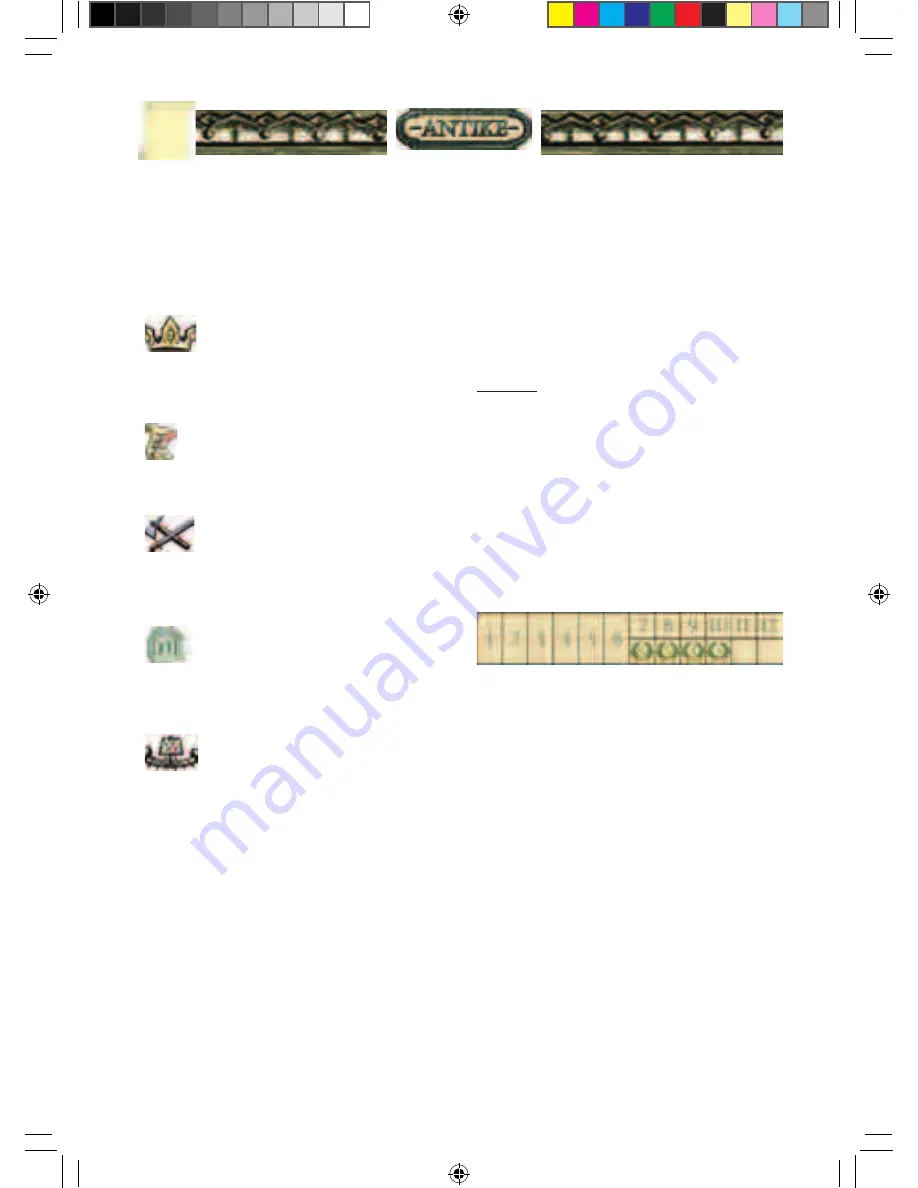
IV
Additionally, a nation which owns all 8 know-
hows is awarded an extra ancient personage
(page VII).
Any deserved ancient personages are awarded
at the end of a turn. Once won, an ancient per-
sonage cannot be lost. This applies also when
possessions that led to the award are no longer
held.
Example
:
A nation with 10 cities and two ancient kings lo-
ses one city (to conquest), so it no longer has
the 10th city it needed to gain the second king.
Nevertheless, it keeps the second king. Howe-
ver when the nation has 10 cities again, it does
not get another king. The third king is awarded
only when the nation possesses a total of 15
cities.
The number of personages each nation has
won is shown by the nations‘ colored octagonal
markers on the score card at the bottom of the
board.
The total of personages needed to win the game
is based on the number of nations participating,
as follows
with 6 nations
7 ancient personages
with 5 nations
8 ancient personages
with 4 nations
9 ancient personages
with 3 nations
10 ancient personages
When five or six nations participate, it can happen
at some point that all 35 personages have been
awarded, and there is still no winner. In that case,
from then on, the first nation to destroy a temple
is the winner.
Note: „Ancient personages“ are referred to as
„Key People“ on the Short Rule cards provided
with this game.
The object of the game is to be the first nation to
win a given number of ancient personages. There
are five kinds of personages, which a nation wins
for different achievements. The total of each per-
sonage available is given in parentheses:
KINGS (9)
For every five cities a nation owns, it receives
one king. When it owns 10 cities, it receives a
second king, etc.
SCHOLARS (8)
For every new advance (new know-how), a
nation receives an ancient scholar
GENERALS (7)
For every temple a nation destroys, it receives
one ancient general. A temple is destroyed when
the city in which it stands is conquered.
CITIZEN (6)
For every three temples a nation owns, it receives
one citizen. When it has a total of six temples,
it receives a second citizen, etc.
NAVIGATOR (5)
For every seven seas sailed, a nation receives
an ancient navigator. For 14 seas sailed, it
receives a second navigator. A province is
counted as a sailed sea for the nation when it
has at least one of the nation‘s galleys in it at the
end of a turn. Other nations‘ galleys standing in
the same provinces are simply ignored.
OBJECT OF GAME
Regel7_eng.indd 4
11.07.2006 0:56:37 Uhr
















